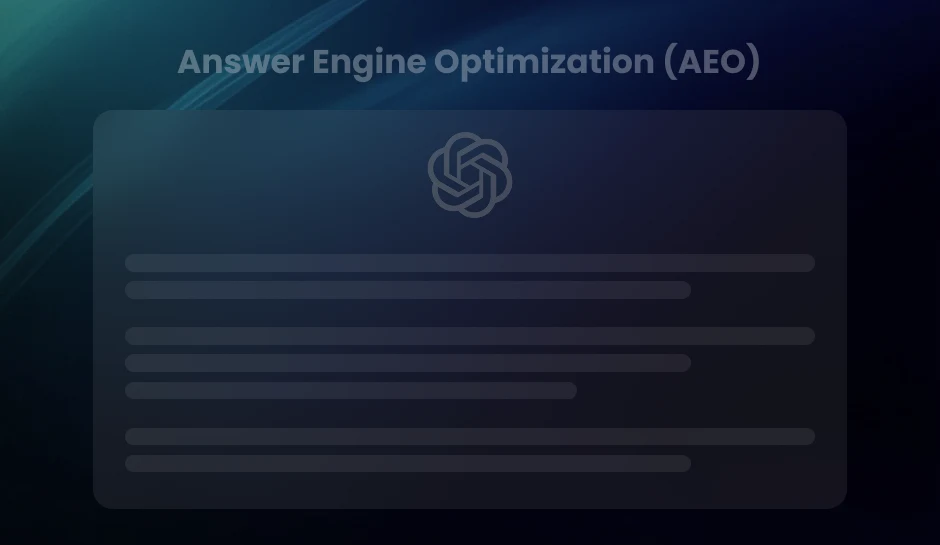
How Data Enrichment Services Improves Accuracy and Business Performance
Businesses relying on outdated or incomplete data struggle with inefficiencies, missed opportunities, and declining customer trust. Data enrichment transforms raw information into actionable insights, helping companies make informed decisions, improve targeting, and stay competitive in a rapidly evolving digital landscape.
In 2025, businesses are not just collecting data; they are relying on it to drive every decision. Yet, many organizations continue to operate with flawed, outdated, or incomplete information without realizing the long-term consequences. Inaccurate data leads to poor insights, ineffective automation, and eroded customer trust. The result is misaligned strategies, wasted resources, and missed revenue opportunities.
Data enrichment is no longer a choice for businesses that want to stay ahead. It is a strategic necessity that refines raw data into a powerful decision-making tool. Companies that invest in enriched data experience higher accuracy, deeper customer understanding, and greater operational efficiency. Those that neglect it risk being left behind in an increasingly competitive and data-driven economy.
This article explores the deeper impact of data enrichment beyond just accuracy. It will highlight how businesses that prioritize high-quality data consistently outperform their competitors and why ignoring data enrichment is no longer an option.
The Strategic Risks of Inaccurate Data in 2025
Many organizations assume their data is reliable, but a significant portion of it is outdated, incomplete, or inaccurate. These hidden flaws undermine critical business functions, affecting decision-making, automation, and customer interactions. By the time inaccuracies become evident, businesses have already lost valuable opportunities and revenue.
Poor data quality is more than an operational challenge; it is a direct threat to business performance. Sales teams pursue leads with incorrect contact details, marketing campaigns fail due to misaligned targeting, and artificial intelligence models produce unreliable insights when trained on flawed data. These inefficiencies result in wasted resources, poor customer experiences, and declining competitive positioning.
The issue is not limited to incorrect data; it is also about what is missing. Without complete customer profiles, real-time behavioral insights, and accurate market data, businesses make decisions based on assumptions rather than intelligence. This limits their ability to respond to market changes, personalize customer experiences, and optimize performance.
As competition intensifies in 2025, organizations that neglect data quality will face increasing challenges in sustaining growth. Businesses that prioritize data enrichment will not only improve accuracy but also strengthen decision-making, enhance customer engagement, and create a foundation for long-term success.
How Data-Enriched Organizations Outperform Their Competitors
Businesses that prioritize data enrichment are not just improving their operations; they are setting a new standard for efficiency, precision, and growth. In contrast, those that continue to rely on outdated or incomplete data struggle with lost opportunities, poor targeting, and declining customer trust. The competitive advantage of data-enriched organizations can be seen across multiple business functions, from sales and marketing to customer experience and strategic planning.
Data-Driven Sales: Higher Conversions and Better Targeting
Sales teams thrive when they have access to accurate and detailed customer information. Enriched data ensures that sales representatives engage with the right leads, understand customer pain points, and personalize their outreach effectively. Instead of chasing outdated contact details or engaging with prospects who do not fit the ideal customer profile, sales teams can focus on high-potential opportunities that drive revenue.
- Higher-quality leads mean fewer wasted calls and emails.
- More personalized sales pitches based on behavioral and demographic insights.
- Shorter sales cycles due to a deeper understanding of customer needs.
Precision Marketing: Reaching the Right Audience with the Right Message
Marketing success depends on targeting the right audience with messaging that resonates. Enriched data refines customer segmentation, improves personalization, and enhances campaign performance. Businesses that leverage enriched data see a higher return on investment from their marketing efforts, as their messages are more relevant and impactful.
- Improved ad targeting based on real-time customer behavior.
- Higher engagement rates from campaigns tailored to audience preferences.
- Reduced marketing spend by eliminating wasted impressions on unqualified leads.
Customer Experience: Stronger Relationships and Higher Retention
Customers expect businesses to understand their preferences, anticipate their needs, and offer seamless experiences. Data enrichment allows companies to build comprehensive customer profiles, enabling proactive and personalized interactions that drive loyalty and satisfaction.
- Faster and more effective issue resolution in customer support.
- Personalized recommendations that increase customer engagement.
- A seamless omnichannel experience based on unified customer data.
Strategic Decision-Making: Anticipating Market Trends
Businesses that rely on enriched data are not just reacting to changes; they are predicting them. A well-structured data enrichment strategy enables companies to analyze trends, identify growth opportunities, and make informed strategic decisions ahead of the competition.
- Better demand forecasting and inventory management.
- Identification of emerging market opportunities before competitors.
- Smarter investment in product development based on real customer insights.
Competitive Resilience: Staying Ahead in a Saturated Market
In 2025, competition is not just about who has the best product or service; it is about who has the best data. Organizations that fail to refine their data will struggle to keep up with market leaders who are leveraging enriched insights to drive efficiency, innovation, and profitability.
- Adaptability in fast-changing industries through real-time data updates.
- More effective use of automation and AI-driven decision-making.
- Stronger brand positioning through data-backed strategies.
Pro Tip- Companies that commit to data enrichment are not just improving internal processes but creating a long-term advantage that ensures growth, stability, and market leadership. As industries evolve, the gap between data-enriched organizations and those that neglect data accuracy will only widen.
The Overlooked Risks of Operating Without Data Enrichment
Many businesses acknowledge the importance of data, yet few fully grasp the risks of relying on outdated, incomplete, or inaccurate information. While the immediate consequences may seem minimal, the long-term impact can be severe, affecting revenue, compliance, customer trust, and even artificial intelligence models. Companies that fail to invest in data enrichment are not just missing opportunities—they are exposing themselves to operational and financial risks that could hinder their growth.
1. Misguided AI and Automation: The Cost of Bad Data
Businesses increasingly rely on artificial intelligence and automation to streamline operations, but these systems are only as effective as the data they are trained on. Poor data quality can lead to misinformed AI-driven decisions, inefficient automation, and customer interactions that feel impersonal and disconnected.
- Chatbots and automated support systems deliver irrelevant responses due to incomplete customer profiles, frustrating users and damaging brand perception.
- AI-powered marketing campaigns misidentify target audiences, leading to wasted ad spend and lower conversion rates.
- Predictive analytics generate unreliable forecasts, causing businesses to invest in the wrong strategies or miscalculate demand projections.
2. Compliance and Regulatory Risks: A Growing Liability
With data privacy regulations such as GDPR, CCPA, and newer global policies tightening restrictions, businesses are under more scrutiny than ever. Inaccurate or outdated data can create compliance violations, leading to financial penalties, legal action, and reputational damage.
- Poor record-keeping leads to regulatory breaches, exposing businesses to costly fines.
- Sending marketing materials to individuals who have opted out or whose information is incorrect violates data protection laws.
- Inability to verify customer identities increases exposure to fraudulent transactions and cybersecurity risks.
3. Customer Trust Erosion: The Hidden Damage of Inaccurate Data
Trust is one of the most valuable assets a business can have, yet inaccurate data erodes it over time. Customers expect personalized, seamless interactions, but outdated or incorrect information creates friction that weakens relationships.
- A customer who has already resolved an issue is contacted again for the same problem, signaling a lack of internal coordination.
- A prospect receives an irrelevant product recommendation, reducing the effectiveness of personalization efforts.
- Customers experience delays in service due to inaccurate order histories or incomplete support records.
These seemingly small errors accumulate, making customers question the reliability of a business. When companies fail to get the basics right, it becomes difficult to convince customers that they can handle more significant needs.
4. Financial Losses from Inefficiencies and Poor Decision-Making
Every department in an organization suffers when data is unreliable. From sales and marketing to operations and finance, poor data quality leads to misallocated budgets, inefficient processes, and increased operational costs.
- Sales teams waste valuable time chasing leads with outdated contact details or incorrect job titles.
- Marketing departments invest heavily in campaigns that do not resonate due to inaccurate customer segmentation.
- Operations teams make inventory and supply chain decisions based on misleading demand projections, resulting in stock shortages or excess inventory.
- Finance teams struggle to create accurate reports, impacting budgeting, forecasting, and investor confidence.
The financial implications of poor data quality are not always immediately visible, but they compound over time, affecting profitability and long-term business health.
5. Competitive Disadvantage: Falling Behind in a Data-Driven Economy
As industries become more reliant on data-driven decision-making, businesses that do not prioritize data enrichment will struggle to compete. Competitors leveraging high-quality data will optimize customer engagement, refine product strategies, and respond to market shifts faster and more effectively.
- Businesses without enriched data lack the agility to pivot when consumer behavior changes.
- Competitors that refine their data strategies create highly personalized customer experiences, strengthening brand loyalty.
- Investors and stakeholders increasingly favor data-driven organizations with clear, accurate insights into business performance.
Data-driven businesses are not just keeping up with industry trends; they are setting them. Those that fail to enhance their data strategies risk fading into irrelevance as competitors gain market share and increase customer engagement through superior insights.
How Data Enrichment Reshapes Business Strategy
Businesses that rely on static, outdated data remain reactive, making decisions based on past trends rather than real-time insights. Data enrichment shifts companies from a reactive to a proactive approach, enabling them to anticipate market changes, personalize customer interactions, and innovate with confidence.
Moving from Reactive to Proactive Decision-Making
Traditional decision-making is often based on incomplete or outdated information, leading to delayed responses and missed opportunities. Enriched data provides real-time insights, allowing businesses to identify emerging trends, mitigate risks before escalating, and adapt strategies more precisely. Organizations prioritizing real-time data can optimize pricing, adjust supply chain strategies, and capitalize on market shifts faster than competitors.
The Shift Toward Predictive Analytics and Hyper-Personalization
Companies no longer rely solely on historical data to shape their strategies. With enriched data, predictive analytics becomes more accurate, enabling businesses to forecast customer needs, detect patterns, and refine marketing efforts. Hyper-personalization moves beyond basic segmentation—businesses can tailor experiences at an individual level, increasing engagement and customer satisfaction. This strategic shift turns customer insights into a competitive advantage, allowing companies to stay ahead of evolving demands.
How Enriched Data Fuels Innovation and Growth
Innovation depends on access to accurate, dynamic information. Businesses leveraging enriched data can identify new revenue streams, refine product offerings, and streamline operations. From improving workflow automation to enhancing AI-driven solutions, enriched data supports strategic advancements across all business functions. Companies that embrace data enrichment drive efficiency and unlock opportunities for scalable, sustainable growth.
The Future of Business: Why Data Enrichment is Non-Negotiable in 2025
Businesses operating with outdated data will struggle to compete in a landscape driven by AI, automation, and rapid market shifts. Data enrichment is no longer a periodic task but an ongoing process that ensures accuracy, efficiency, and strategic advantage.
AI-powered data enrichment is transforming business intelligence by continuously refining and validating information. Companies leveraging these advancements gain deeper customer insights, improve predictive analytics, and enhance decision-making without manual intervention.
Traditional data management approaches, relying on static databases and manual updates, are becoming obsolete. Markets evolve quickly, and businesses that fail to update their data in real time risk making costly errors, losing customer trust, and falling behind more agile competitors.
Continuous data enrichment is essential for long-term success. It enables hyper-personalization, real-time adaptability, and stronger compliance with changing regulations. Organizations that integrate ongoing enrichment into their strategy will drive innovation, optimize operations, and maintain a competitive edge.
In 2025, enriched data is not just an asset but a requirement for businesses aiming to scale, innovate, and lead in their industries. Companies prioritizing data accuracy will set the standard for growth and efficiency in an increasingly digital world.
Key Takeaways
- Inaccurate data leads to poor decisions, missed opportunities, and lost revenue.
- AI-driven data enrichment enhances predictive analytics and personalization.
- Outdated data management causes inefficiencies across sales, marketing, and operations.
- Clean, enriched data ensures compliance and improves automation accuracy.
- Data enrichment is essential for businesses to stay competitive and drive growth..
Conclusion
In 2025, businesses can no longer afford to operate with inaccurate or outdated data. The difference between industry leaders and those struggling to keep up is the ability to leverage enriched, real-time data for better decision-making, customer engagement, and operational efficiency.
Organizations that fail to invest in data enrichment will face growing challenges—from wasted marketing budgets to flawed AI models and regulatory risks. Meanwhile, those that integrate ongoing data enrichment into their strategy will unlock new opportunities, drive revenue growth, and strengthen their market position.
Do not let poor data hold your business back
Contact us at info@diggrowth.com to start building a data-driven future.
Ready to get started?
Increase your marketing ROI by 30% with custom dashboards & reports that present a clear picture of marketing effectiveness
Start Free Trial
Experience Premium Marketing Analytics At Budget-Friendly Pricing.

Learn how you can accurately measure return on marketing investment.
Additional Resources
Don’t Let AI Break Your Brand: What Every CMO Should Know
AI isn’t just another marketing tool. It’s changing...
Read full post postFrom Demos to Deployment: Why MCP Is the Foundation of Agentic AI
A quiet revolution is unfolding in AI. And...
Read full post postAnswer Engine Optimization (AEO): The New Frontier of SEO in 2025
As digital experiences continue to evolve, so does...
Read full post postFAQ's
Enriched data helps detect anomalies, verify identities, and prevent fraud by ensuring accurate, up-to-date customer information. Through continuous data validation and enrichment, businesses can enhance security protocols, reduce risks, and improve fraud detection accuracy.
Yes, enriched data reduces time spent on correcting errors, searching for missing information, and dealing with inefficiencies. Sales, marketing, and operations teams work more efficiently with accurate data, leading to faster decision-making and higher productivity.
Industries such as finance, healthcare, e-commerce, and B2B services benefit significantly. Enriched data enhances customer insights, risk assessments, personalized marketing, and regulatory compliance, making it essential for businesses operating in data-driven environments.
Accurate and enriched data enables businesses to personalize interactions, anticipate customer needs, and deliver seamless experiences. This leads to stronger relationships, higher satisfaction, and improved customer loyalty, reducing churn rates.
Costs vary based on the provider, volume, and complexity of data. However, the long-term benefits—higher accuracy, efficiency, and revenue growth—outweigh initial costs, making data enrichment a valuable investment for business success.
 Arpit Srivastava
Arpit Srivastava  Rahul Sachdeva
Rahul Sachdeva 

